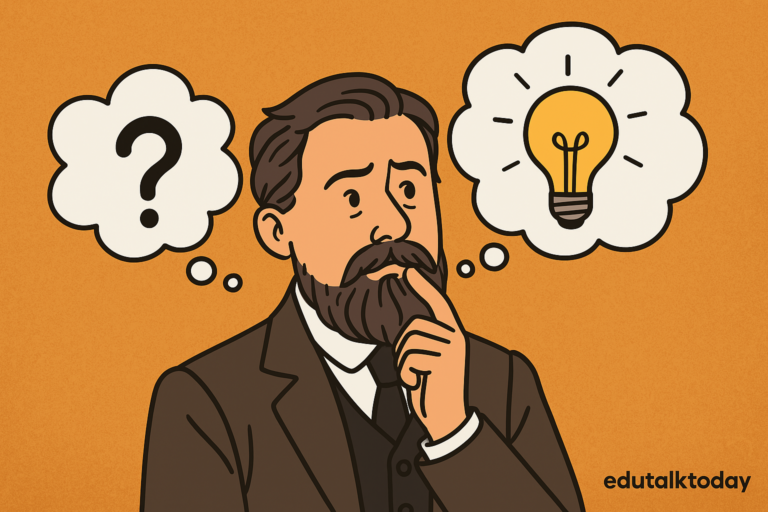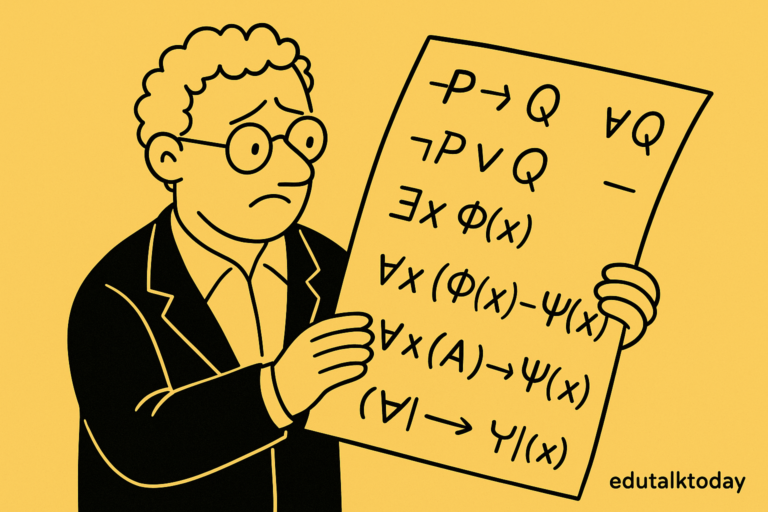How Do Continental Thinkers Like Marx Foucault and Levinas Understand Justice Today
When we talk about justice, it’s tempting to think of it as something solid and universal—like a law of nature. But if you take a tour through Continental philosophy, you realize it’s anything but settled. Justice is messy, political, and deeply tied to how we live together.
For Karl Marx, justice can’t just be about courts or fair rules; it’s about whether the entire structure of society allows people to live without exploitation. Michel Foucault, on the other hand, warns us that even the systems we call “just” are soaked in hidden forms of power. And then there’s Emmanuel Levinas, who shifts the whole conversation by saying justice begins in our ethical responsibility to another person.
I love this tension—it shows that justice isn’t a single “thing” we can capture, but a conversation across generations of thinkers asking: how do we live decently with one another?
Marx on justice
Whenever I think about Marx, I picture someone pointing at the world and saying: “Look, the problem isn’t just bad laws or greedy people—it’s the entire system we’re stuck in.”
And honestly, that’s a game changer. Marx didn’t see justice as a moral code you follow; he saw it as tied to the material conditions of society. If you’ve ever worked a job that drained you while making your boss rich, you’ve already had a taste of what Marx was getting at.
The unfair foundation of capitalism
At the heart of capitalism, Marx argued, is exploitation. Workers create value, but the profits get scooped up by those who own the means of production. Imagine baking an entire cake, but someone else eats it and tosses you the crumbs. That’s capitalism in a nutshell.
For Marx, justice can’t be reduced to fair pay or legal protections—it requires tearing down a system that thrives on inequality.
Justice as freedom, not charity
This is where it gets interesting: Marx wasn’t impressed by reforms like minimum wages or charity. To him, those were band-aids on a broken leg. He believed justice meant real emancipation—workers owning their labor, people living without being trapped by class hierarchies. If you’ve ever wondered why debates around healthcare, housing, or even student debt feel so intense, Marx would say it’s because these aren’t “extra perks.” They’re about whether people can live free from economic domination.
Law as a disguise
Here’s the kicker: Marx thought a lot of talk about “justice” in politics and law was smoke and mirrors. Laws might promise equality, but they often protect the interests of those in power. Take property rights, for example. On paper, they sound fair: you own what you earn. But under capitalism, property rights often mean protecting corporations’ control over resources while ordinary people struggle to get by. Marx’s critique helps us see how justice talk can be used to justify injustice.
A vision beyond fairness
Now, here’s where Marx surprises people. He didn’t dream of a society where we all just get a fair slice of the pie. He imagined a world where the whole pie-making process was shared—no bosses, no workers, just people freely cooperating. That’s why he rarely framed his project as “justice” in the usual sense. Instead, he pointed toward a classless society where the very conditions that made injustice possible no longer existed.
Why this still matters
You might be thinking: okay, but Marx lived in the 19th century. True, but just look around. Conversations about economic inequality, wage gaps, or billionaires paying lower tax rates than teachers—they all echo Marx’s worry that capitalism is inherently tilted. Even modern movements like the fight for a living wage or calls to regulate tech giants reflect his idea that the system itself—not just a few bad apples—needs scrutiny.
So, when I read Marx, I don’t just see an old radical. I see someone asking us to think bigger about justice. Is it enough to tweak the rules, or do we need to rethink the game entirely? And whether or not we agree with his solutions, that question alone pushes us into deeper waters than the usual debates about “fairness.”
Foucault on justice
If Marx wanted us to look at who owns the cake, Michel Foucault wanted us to look at the entire kitchen—the walls, the cameras, the rules of who gets to bake and who gets punished for stealing flour. His big point? Power isn’t just top-down from kings, bosses, or governments. It’s everywhere, flowing through institutions, schools, prisons, and even the ways we talk about ourselves. Justice, for Foucault, isn’t a timeless truth—it’s shaped and reshaped by these invisible networks of power.
Justice as a moving target
When I first read Foucault, I was struck by how suspicious he was of words like “justice” or “truth.” To him, these aren’t neutral. They’re shaped by whoever gets to decide the rules. Think about how societies in the past treated witches, or how 19th-century doctors labeled women as “hysterical” for rebelling against norms. Both were justified as “truth” in their times. So, Foucault would say: be careful when you hear claims about justice—it might just be power talking through you.
Prisons as laboratories of power
One of his most famous books, Discipline and Punish, uses the prison system as a case study. He noticed that modern prisons weren’t simply about locking people up. They were designed to discipline bodies, to create “docile” citizens. The prison became a model for schools, hospitals, even workplaces—all places where surveillance and regulation quietly shape how we behave. That blew my mind. It’s not that justice is “served” by prisons; it’s that prisons manufacture a certain idea of what justice looks like.
For example, why do we consider stealing a loaf of bread a crime punishable by jail, but not wage theft by employers, which often robs workers of far more? Foucault would nudge us to ask: whose interests are being protected by those laws?
Knowledge and justice are twins
Foucault also stressed that knowledge and power go hand in hand. Think about the rise of psychology and criminology. These weren’t just neutral sciences—they shaped how we thought about criminals, sanity, and morality. A person labeled “mentally ill” or “deviant” suddenly becomes someone who needs treatment, control, or even confinement. What looks like justice is actually the result of expert knowledge serving systems of power.
A modern example? The way algorithms decide who gets bail or who gets flagged for extra airport screening. These aren’t neutral tools—they reflect hidden biases. Foucault would be fascinated (and maybe horrified) at how technology extends surveillance into daily life.
Resistance and creativity
Here’s the hopeful part: Foucault didn’t think we were doomed to oppression. He argued that where there is power, there’s also resistance. Justice, then, isn’t about finding a universal principle. It’s about constantly questioning the systems we live under and inventing new ways of being. For instance, prison abolition movements today, or the push to rethink mental health beyond medical labels, echo Foucault’s idea that we can resist and reimagine.
Why Foucault sticks with me
Reading Foucault sometimes feels like putting on glasses that reveal hidden wiring in the walls. Suddenly you see how much of what we call “justice” is less about fairness and more about control. It makes me uneasy, but also sharper. It forces me to ask: when I demand justice, am I reinforcing some hidden system, or am I actually resisting it? That’s a question worth keeping in our pockets.
Levinas on justice
If Marx is about systems and Foucault about power, Emmanuel Levinas turns us in a completely different direction—toward the face of the Other. He asks us to imagine: what if justice doesn’t begin with laws, or power, or economics, but with the moment you lock eyes with another person and realize you’re responsible for them? Honestly, that hits me in the gut every time I think about it.
The face that commands us
Levinas argued that the face of another human being isn’t just physical—it’s a moral demand. When you see someone’s vulnerability, their need, their hunger, you’re confronted with an undeniable responsibility. It’s like the Other is saying: “Don’t kill me. Care for me.” That’s the root of justice for Levinas. Not a constitution, not a courtroom, but a simple, overwhelming sense of obligation.
Think about when you pass a homeless person on the street. The encounter itself creates a demand before you even rationalize it. Levinas would say that’s the birthplace of justice.
Infinite responsibility
Here’s where Levinas goes further than most of us are comfortable with: our responsibility to others is infinite. There’s no “I’ve done enough.” Even if you give food or shelter, you’re still responsible. Some people find this exhausting, but Levinas isn’t saying you need to sacrifice yourself endlessly—he’s saying justice isn’t about balance sheets. It’s about recognizing that no matter how much we do, the Other’s needs remain greater than our capacity to meet them. That humility is the key.
Justice needs institutions—but cautiously
Levinas wasn’t naive. He knew we can’t live one-on-one forever; we need laws, courts, governments. But he warned: these institutions should never forget that they’re secondary. They exist only to serve the ethical demand that arises between people. The danger is when institutions become ends in themselves, losing sight of the human beings they’re meant to protect.
A striking example is refugee policy. Governments often reduce asylum seekers to numbers and quotas. Levinas would insist: behind those statistics are faces, and justice begins with seeing them.
Hospitality and the stranger
Levinas also reimagined justice through the idea of hospitality. To him, welcoming the stranger is the ultimate ethical act. In a world fractured by borders, racism, and exclusion, this hits hard. Justice isn’t just punishing wrongs—it’s opening ourselves to the Other, even when they disrupt our comfort.
You can see echoes of this in grassroots movements that house refugees or community kitchens that welcome anyone, no questions asked. These are Levinasian moments: justice as hospitality.
Why Levinas feels radical today
In our world of efficiency, algorithms, and cost-benefit calculations, Levinas feels almost like a poet of ethics. He reminds us that justice isn’t only about structures or systems—it’s about relationships. And honestly, that feels radical. Imagine if policy debates about healthcare or immigration started not with budgets but with the face of the person in need. That’s Levinas’ challenge: to keep the human face at the center.
Final Thoughts
What I love about putting Marx, Foucault, and Levinas side by side is how wildly different their answers are. Marx tells us to look at the economic structures that shape injustice. Foucault tells us to watch out for the invisible webs of power hiding in our institutions. Levinas whispers that it all begins with the Other’s face, with a responsibility we can never fully meet. None of them gives us a neat solution, and maybe that’s the point. Justice isn’t one story—it’s a conversation. And the more voices we bring into it, the better chance we have of living in a world that feels a little less cruel, a little more humane.





